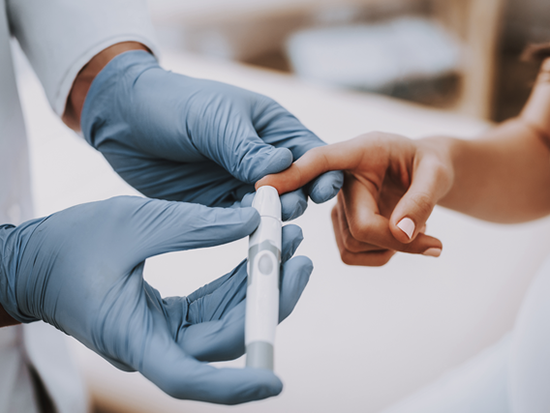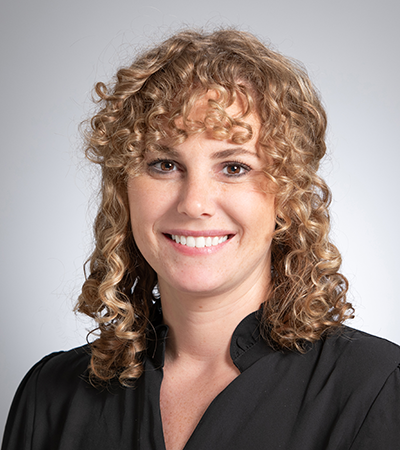Media contact: Hannah Echols
 A UAB expert explains what a certified diabetes and education specialist is and how they can benefit patients with diabetes.Diabetes is a complex disease that can affect many systems of the body and often requires individualized care for each patient. It is generally best managed by an entire care team, including endocrinologists, nephrologists and optometrists.
A UAB expert explains what a certified diabetes and education specialist is and how they can benefit patients with diabetes.Diabetes is a complex disease that can affect many systems of the body and often requires individualized care for each patient. It is generally best managed by an entire care team, including endocrinologists, nephrologists and optometrists.
Because of its complexity, having diabetes can be overwhelming. Patients must navigate doctor’s appointments, learn about technology options and plan nutritious meals. It can feel like too much for one person, even without considering other life factors. This is where diabetes educators can step in to help.
Mariah Stewart, supervisor of the UAB Medicine Outpatient Diabetes and Nutrition Education Clinic, is a certified diabetes care and education specialist.
She explains that a CDCES is a specially trained health care professional who assists diabetes patients. Becoming a CDCES requires 1,000 hours of training and passing a board exam. CDCES professionals educate patients on nutrition, blood sugar monitoring, exercise, stress management and preventing complications.
“A CDCES offers much more to patients than an educational flyer,” Stewart said. “Patients receive ongoing support and resources to make the difficult lifestyle changes needed to control diabetes.”
 Mariah Stewart, RDN, explains that Certified Diabetes Care and Education Specialists are specially trained to assists diabetes patients.
Mariah Stewart, RDN, explains that Certified Diabetes Care and Education Specialists are specially trained to assists diabetes patients.
Photography: Jennifer Alsabrook-TurnerAn advanced CDCES might be trained in continuous glucose monitoring and insulin pumps, teaching patients to use these devices and interpreting data for treatment suggestions.
While they often collaborate with primary care providers and endocrinologists, a CDCES focuses on diabetes management, whereas primary care provider oversees general health care.
Endocrinologists treat diabetes more specifically as a hormone-related condition and handle more complex cases. Both can refer patients to a CDCES, who can then help with individualized meal plans, referring to other specialists and any questions about diabetes technology options.
The UAB Medicine Outpatient Diabetes and Nutrition Education Clinic, housed in The Kirklin Clinic of UAB Hospital, consists of a team of registered dietitian nutritionists and certified diabetes care and education specialists.
The clinic offers an American Diabetes Association-accredited Diabetes Self-Management Education and Support program, covering nutrition, blood sugar monitoring, exercise, stress management and complications prevention.
Registered dietitian nutritionists also provide nutritional guidance for conditions like prediabetes, chronic kidney disease, hyperlipidemia, cardiovascular disease, gastrointestinal disease, obesity and tube feeding management.
Learn more about the UAB Comprehensive Diabetes Center and UAB Outpatient and Nutrition Education clinic.
“The clinic empowers patients by providing comprehensive diabetes education, medication management recommendations and a continuous glucose monitor and can also provide insulin pump training for patients needing more advanced insulin regimens,” Stewart said.
To make an appointment with the UAB Medicine Outpatient Diabetes and Nutrition Education Clinic, a patient may ask their medical provider for a referral. UAB patients may also call the clinic directly at 205-801-8711.